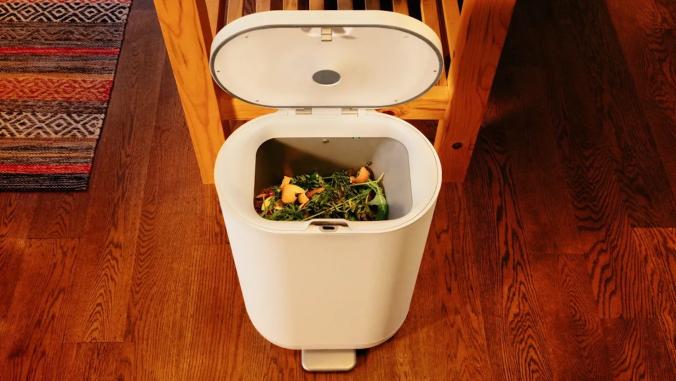After unpacking what happened in the startup world in Q2 in the last Food Weekly edition, here’s what bigger businesses have been up to.
It was a relatively quiet spring for the world’s largest food and agriculture companies. For past versions of this roundup, I’ve been spoiled with choices when deciding what to feature. Yet this time, I had to do an extra round of digging to find things worth including.
This data point alone is something to chew on — is the adoption of climate- and people-friendly practices slowing? Or are businesses just dialing down their public communications about respective initiatives in light of more scrutiny in this space? Either way, let’s look at the developments that did occur this quarter.
Circular economy initiatives have circled back
Despite their critical contribution to creating a global economy that respects planetary boundaries, circular solutions aren’t always easy to come by in the food world. It’s exciting to see that Q2 has been different, bringing about a range of announcements in this space.
This spring, two new facilities have opened in Europe that integrate closed-loop practices. First, PepsiCo opened a new factory in Poland — its greenest one to date, according to the company. Among other sustainable technologies, it collects rainwater and reuses heat process water. Potato peels from the production help power the plant via anaerobic digestion and are then turned into fertilizer.
Danfoss opened a smart supermarket in Denmark that applies new refrigeration, heat capture and food waste reduction technologies. See the innovation in action in a video the company posted on LinkedIn.
Further updates from the retail industry include Kroger’s introduction of an upcycled food white label brand and Tesco’s launch of an initiative that recycles plastic food trays, turning them into packaging for refrigerated ready meals.
In food service, Chipotle is scaling its composting efforts to an additional 23 percent of locations across the country. Part of the initiative’s success will hinge on figuring out how to incentivize customers to dispose of their trash correctly.
Yet not everything is rosy. Ocean conservation non-profit Oceana recently called out Coca-Cola for not meeting its reusable packaging goal. According to the company’s sustainability report published this spring, Coca-Cola’s total beverage volume served in reusable packaging fell from 16 percent in 2020 to 14 percent in 2022. It’s not entirely clear why this decrease occurred, but Coca-Cola stated it may be partially due to changes in reporting metrics.
Plant-based progress stays strong
Despite what the many worrying headlines about the plant-based industry this year may suggest, plant-based innovation and adoption continue to advance in the food industry. The last quarter brought about many new partnerships, investments and other announcements.
Sodexo’s pledge to make 50 percent of its college campus menus plant-based by 2025 is among the most salient. The cafeteria giant had previously aimed to deliver 42 percent plant-based menus by this date. Amping up its commitment underlines Sodexo’s confidence in its ability to make good on the promise. Collaborating with the Humane Society of the United States, it has been increasing its vegan offerings through recipe and menu development, nutrition advice and culinary training.
Meanwhile, Nestlé and Cargill have reaffirmed their long-term commitment to growing the alternative protein sector. They stated that consumer demand for climate-friendly meat replacements remains strong even as the growth curve may be leveling out somewhat.
ADM continues to be another active player in the game, establishing new partnerships with Believer Meats and Air Protein to bring more innovative products to market. Finally, Danone announced a new strategic collaboration with Imagindairy to accelerate dairy production via microbe-based precision fermentation.
Is regenerative agriculture slowing down?
Setting regenerative agriculture goals and working with farmers to implement climate-smart practices such as cover crops, manure management and reduced tilling techniques has had considerable hype in the food industry over the past years. But Q2 could not keep up with the buzzing momentum. Rather than swimming through a sea of announcements, I only had a handful of new projects trickling in.
General Mills entered two new partnerships with the American Farmland Trust and Rodale Institute that will help advance its longstanding commitment to regenerative agriculture. Its work with the American Farmland Trust will support underserved farming communities in California’s San Joaquin Valley. The one-year $80,000 grant commitment will fund educational programming and on-farm technical assistance for women-owned or operated farms interested in adopting regenerative practices.
With Rodale, General Mills will offer more direct farmer-to-farmer mentorship opportunities to advance regenerative agriculture in key organic wheat, oat and tomato sourcing regions.
Besides General Mill’s leading work on soil health, these three other players caught my attention:
-
Bunge and Nutrien Ag Solutions announced a strategic agreement to bring regenerative practices to U.S. farmers in the 2023 to 2024 crop season by implementing solutions to help with soil health and nutrient efficiency.
-
Organic Valley expanded a 2022 carbon insetting pilot to 34 U.S. states that will pay farmers $20 per metric ton for the carbon they sequester or reduce using practices such as manure composting or agroforestry.
-
As a new player entering the regenerative agriculture space, snacking company Kind introduced its first California-based project to improve almond industry practices with innovative water efficiency, soil health and orchard recycling practices.
With that, we’re all caught up on major industry developments. I hope the pace of work will pick up again over the summer — which, by the way, started off as the hottest in history — so we truly don’t have any time to waste bringing decarbonization and resilience to our food systems.






